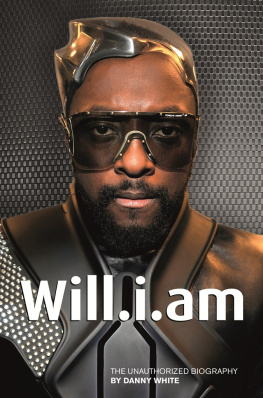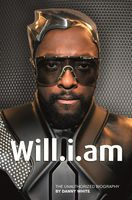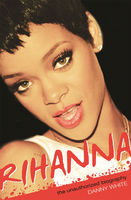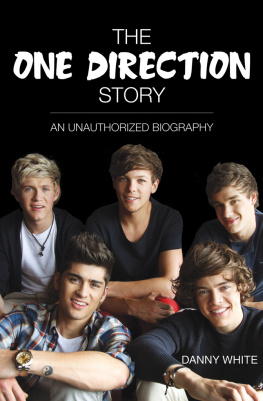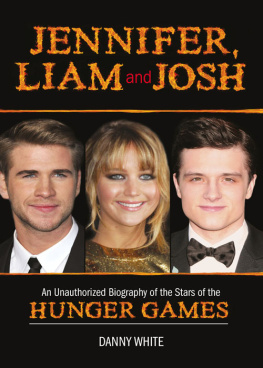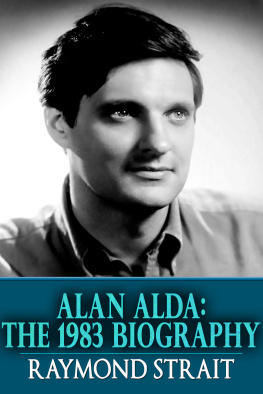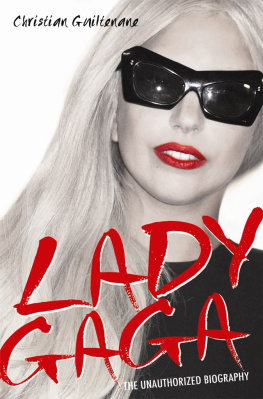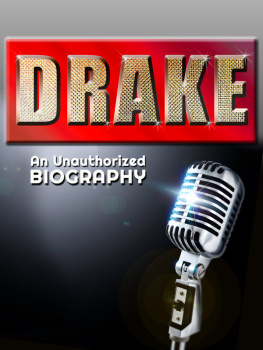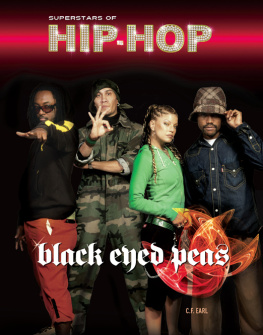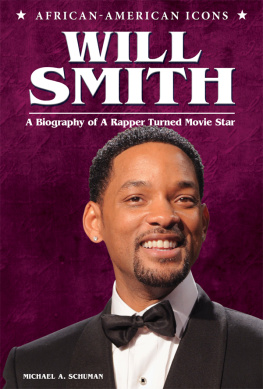Will.i.am

First published in Great Britain in 2012 by
Michael OMara Books Limited
9 Lion Yard
Tremadoc Road
London SW4 7NQ
Copyright Michael OMara Books Limited 2012
All rights reserved. You may not copy, store, distribute, transmit, reproduce or otherwise make available this publication (or any part of it) in any form, or by any means (electronic, digital, optical, mechanical, photocopying, recording or otherwise), without the prior written permission of the publisher. Any person who does any unauthorized act in relation to this publication may be liable to criminal prosecution and civil claims for damages.
A CIP catalogue record for this book is available from the British Library.
ISBN: 978-1-78243-003-2 in hardback print format
ISBN: 978-1-78243-004-9 in trade paperback format
ISBN: 978-1-78243-019-3 in EPub format
ISBN: 978-1-78243-020-9 in Mobipocket format
Designed and typeset by Design 23, London
www.mombooks.com
Foreword
W ills single Reach for the Stars is, on its surface, about space travel. With its grand, orchestral opening it has an iconic, Hollywood feel from the start. It was chosen to become the first song to be played on Mars, its cleverly named universal premiere taking place in August 2012. The songs significance in Wills story goes beyond that though its lyrics almost reflect the mission statement that has guided his life. He has always refused to accept that the sky is the limit, and the personal universe he operates within has always been a vast arena.
Whatever he has achieved in his life, he has responded to each achievement by aiming ever higher. Even his clothing range, deliberately evocative of an intergalactic superhero, fits with the songs science-fiction atmosphere. His life story to date also tallies with the title of the song in another sense: a ravenous and successful networker, Will has reached for many stars for collaboration and discovered to his delight that many were only too happy to meet his grasp.
And the public, it seems, is no less attracted to him. Why does he enchant us so?
The answer can be found, in part, in the way he runs against the grain of twenty-first-century celebrity culture. In an age in which people can become famous with precious little talent or justification, Wills abilities shine. Although still in his thirties, in addition to his role as frontman of the planet-conquering supergroup The Black Eyed Peas, he has proven himself to be a fine solo artist; a distinguished and in-demand producer; a manager; actor; designer; businessman and philanthropist. He is also a popular reality-television coach, thanks to his memorable presence on the first series of BBC Ones primetime Saturday night TV show The Voice.
He has approached all of his endeavours with only the highest success in mind. In his autobiography, Fallin Up, his Black Eyed Peas bandmate, Taboo, summed-up Wills approach to life well, He never walked on the playing field to be a participant, he walked on with a desire to be the greatest. Number one. Unrivalled. That was the pressure he exerted on himself. Always. If he has not deserved his fame through all these channels of activity, it is hard to see how he ever will. He has earned a substantial personal fortune. The scale of it is disputed but it is generally believed to be not far either side of 50 million.
There is more to his appeal than all that, though. Wills admirers love his relentless positivity, particularly as he has come to their attention during such uncertain and unsettling times. Since the turn of the century, the threat of terror, renewed global tensions, environmental turmoil and the economic downturn have left the public keen for messages of hope and encouragement. Indeed, it is no coincidence that Will played such a large part in the 2008 election campaign for Barack Obama. The Democrat leaders slogans of positivity and hope chimed deep within Wills own psyche. Will also forms a refreshing, some might say old-fashioned contrast to the tendency of many modern celebrities to overshare their personal peccadilloes and dramas to an almost grotesque degree. Wills mysterious private life intrigues us all the more so due to the enthusiasm with which many of his contemporaries air their every dirty garment in public. Indeed, even his catchy stage name of will.i.am serves as a veil between the real Will and the public: removing that veil is difficult yet rewarding.
In the pages ahead we will explore the differences between will.i.am and William James Adams Jr, and where one begins and the other ends. Until now, his private life has mostly been an enigma, and that suits him just fine. He is a stranger to scandal in large part because he rarely allows himself enough spare time to get into any scrapes. Pressed by a newspaper journalist over why he did not as far as the public is concerned have a girlfriend, Will said: Im too busy turning my dreams into reality. It was a slightly self-aggrandizing reply, an evasive one even, but it was no less truthful for that. In common with a growing number of twenty-first-century celebrities, Will has built a life for himself into which a significant other would find it hard to fit. Work and creativity always come first.
Indeed, while it is a comparison that neither man may enjoy after they fell out over the role of Wills client Cheryl Cole in the American series of The X Factor, Wills personal life can be understood to a large extent by comparing it with that of Simon Cowell. Both men are tireless workaholics who are so busy and industrious that they have little time to fully mourn their lack of a consistent significant other. A more influential similarity between the men is one that makes their chances of settling down in the future unlikely: both are beautifully hopeless mummys boys. Will can scarcely complete an interview with the media without praising his mother, Debra. When he wants to praise someone, he does so by comparing them with Debra. He values her advice even as he approaches his forties. He might never meet a woman who he will admire more than his mother; a large part of him does not want to.
Like all true eccentrics, he seems blissfully unaware of what an eccentric he is. The kookiness of his dress, lifestyle and language all come naturally to him. It is little surprise that longstanding Anglophile Will is fast becoming an honorary Englishman: indeed he is like a rapping, African-American twist on the classic, eccentric English gentleman. Boy, can he talk: he has been described as a quote monster. A loquacious, fast-talking and fast-thinking man, he never knowingly under talks. Annabel Rivkin, who interviewed him for ES magazine, recalled how his verbal floodgates fly open and all of a sudden hes on a manifesto-centric roll, holding forth, twitchy, lyrical, cheeky. Its over-stimulating stuff. Another writer described an encounter with him as frazzling, and mildly exhausting.
Sometimes, though, he is more concise. Asked which phrase he uses too often, Will quickly identified his favourite one. Keen viewers of The Voice, who noted with growing amusement how often he used the slang term dope (meaning good; great), will be surprised that he does not consider that his most over-used saying. Instead, the words Will just cannot stop using are: Thats crazy. Perhaps when he does use that phrase, he is reflecting not just on the moment, but on his whole life story.
1 Reaching New Heights
I n 2006, the Black Eyed Peas were visiting an impoverished neighbourhood in Soweto, South Africa, when the band became surrounded by kids. Lifting the arm of a fourteen-year-old boy, Will told the excitable ensemble, He is fourteen. When I was fourteen, I started a group that became the Black Eyed Peas. I, too, came from a poor background. But I have made it and so can you!

